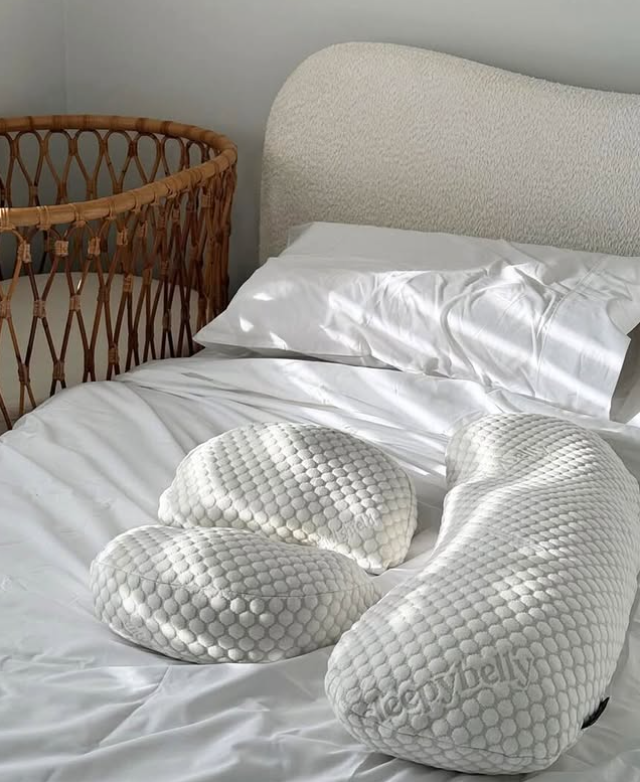Pregnancy is a time of profound change, both physically and emotionally. One of the most common challenges faced by expecting mums is disrupted sleep. Between hormonal shifts, physical discomfort, and the excitement (and sometimes anxiety) of impending motherhood, getting a restful night can feel elusive. While many might consider medication, most pregnant women prefer natural sleep aids that are safe for both themselves and their babies.
This article explores the top five natural sleep aids that are safe and effective during pregnancy, supported by Australian health authorities and research. These strategies can help improve your sleep quality, support your wellbeing, and make your pregnancy journey a little easier.
Why Is Sleep So Important During Pregnancy?
Sleep is essential for your health and your baby’s development. During pregnancy, your body works harder to support your growing baby, regulate hormones, and maintain your immune system. Poor sleep has been linked to increased risks of gestational diabetes, high blood pressure, and mood disorders (Australian Government Department of Health).
Unfortunately, many pregnant women experience insomnia, restless legs syndrome, leg cramps, and frequent waking, all of which can severely impact sleep quality. Finding safe, natural ways to improve sleep is crucial.
1. Magnesium Cream: A Topical Solution for Muscle Relaxation and Sleep
Magnesium is a mineral vital to over 300 biochemical processes in the body, including muscle function, nerve regulation, and sleep quality. During pregnancy, magnesium levels can drop, contributing to muscle cramps, tension, and restless legs — all common culprits of poor sleep.
Why Magnesium Cream?
Unlike oral supplements, magnesium cream is applied directly to the skin, allowing for better absorption and fewer digestive side effects such as nausea or diarrhoea, which can be problematic during pregnancy. Topical magnesium helps relax muscles, reduce cramps, and calm the nervous system, promoting deeper, more restful sleep.
Evidence and Recommendations:
Research shows magnesium supplementation can improve sleep efficiency and reduce insomnia symptoms. The Better Health Channel highlights magnesium’s role in preventing deficiency-related muscle cramps and improving relaxation (Health Direct).
How to Use: Apply magnesium cream to areas prone to cramps or tension, such as calves, thighs, and lower back, ideally 30 minutes before bedtime. Start with a small amount to test skin sensitivity. Choose pregnancy-safe formulations free from harmful additives.
Recommended Product:
Sleepybelly’s Magnesium Body Cream is formulated specifically for pregnancy and postpartum use, combining high-quality magnesium with skin-nourishing ingredients. It’s fast-absorbing, non-greasy, and trusted by Australian mums and midwives (Sleepybelly Magnesium Body Cream).
2. Herbal Teas: Gentle Calming Effects Without Caffeine
Herbal teas have long been used to promote relaxation and sleep. During pregnancy, caffeine intake should be limited, making herbal teas an excellent alternative.
Safe Herbal Options:
-
Lemon Balm: Helps ease nervous tension and improve sleep quality.
-
Rooibos: Naturally caffeine-free and rich in antioxidants, rooibos is soothing and safe during pregnancy.
Safety Considerations:
Not all herbs are safe during pregnancy, so it’s important to choose blends specifically formulated for pregnant women and consult your healthcare provider before use. The Australian Government’s Pregnancy Care Guidelines provide detailed advice on herbal safety (Pregnancy Care Guidelines).
How to Use: Enjoy a warm cup of herbal tea in the evening as part of your bedtime routine. Avoid adding caffeine or sugar, which can interfere with sleep.
3. Mindful Breathing and Meditation: Calming the Mind for Better Sleep
Stress and anxiety are common during pregnancy and can significantly disrupt sleep. Mindful breathing and meditation techniques help reduce stress hormones and promote relaxation.
Benefits:
-
Lowers cortisol levels, the body’s primary stress hormone.
-
Enhances parasympathetic nervous system activity, which supports rest and digestion.
-
Improves sleep onset and duration.
How to Practice: Set aside 10-15 minutes before bed for deep breathing exercises or guided meditation. Apps and online resources offer pregnancy-specific mindfulness sessions.
4. Prenatal Yoga: Physical and Mental Preparation for Restful Sleep
Prenatal yoga combines gentle stretching, breathing, and relaxation techniques tailored for pregnant bodies. It helps relieve muscle tension, improve circulation, and reduce anxiety — all factors that contribute to better sleep.
Why It Works:
-
Eases physical discomfort such as back pain and hip tightness.
-
Encourages mindful breathing and body awareness.
-
Promotes mental calmness and reduces stress.
Safety: Always choose prenatal-specific classes or videos and consult your healthcare provider before starting.
How to Incorporate: Practice prenatal yoga 2-3 times a week, ideally in the late afternoon or early evening, to prepare your body and mind for sleep.
5. Pregnancy Pillows: Support for Comfortable and Safe Sleep Positions
Pregnancy pillows are specially designed to support your changing body, helping you maintain safe and comfortable sleeping positions. They provide targeted support to your belly, back, hips, and legs, reducing pressure points and preventing discomfort that can wake you during the night.
Benefits:
-
Encourages side sleeping, which improves blood flow to your baby.
-
Reduces back pain and hip pressure.
-
Helps prevent rolling onto your back, which is not recommended after the first trimester.
Choosing the Right Pillow:
Look for adjustable, versatile designs that grow with your bump and can be used postpartum for breastfeeding support. Sleepybelly’s Pregnancy Pillow is a popular choice among Australian mums for its compact, three-piece design and midwife recommendations (Sleepybelly Pregnancy Pillow).
Bonus Tip: Optimise Your Sleep Environment
Creating a sleep-friendly environment is a natural and effective way to improve sleep quality during pregnancy.
Key Elements:
-
Temperature: Keep your bedroom cool (around 18-20°C) to support natural body temperature drops during sleep.
-
Darkness: Use blackout curtains or eye masks to block light, which can interfere with melatonin production.
-
Noise: Minimise disruptive sounds or use white noise machines to create a soothing background.
-
Comfort: Invest in supportive bedding, including maternity pillows, to reduce physical discomfort.
The Sleep Health Foundation offers practical advice on creating an ideal sleep environment (Sleep Health Foundation).
Final Thoughts
Sleep challenges during pregnancy are common but manageable with the right natural aids. Magnesium cream, herbal teas, mindful meditation, prenatal yoga, and a well-optimised sleep environment are all safe, effective strategies supported by Australian health experts.
Before starting any new sleep aid or routine, always consult your healthcare provider to ensure it’s appropriate for your individual pregnancy. Prioritising good sleep not only supports your health but also creates a strong foundation for your baby’s growth and development. Using supportive tools like a quality maternity pillow can make a significant difference in your comfort and sleep quality. The Sleepybelly Pregnancy Pillow is designed to provide targeted support to your belly, back, and hips, helping you maintain safe and comfortable sleeping positions throughout your pregnancy.



